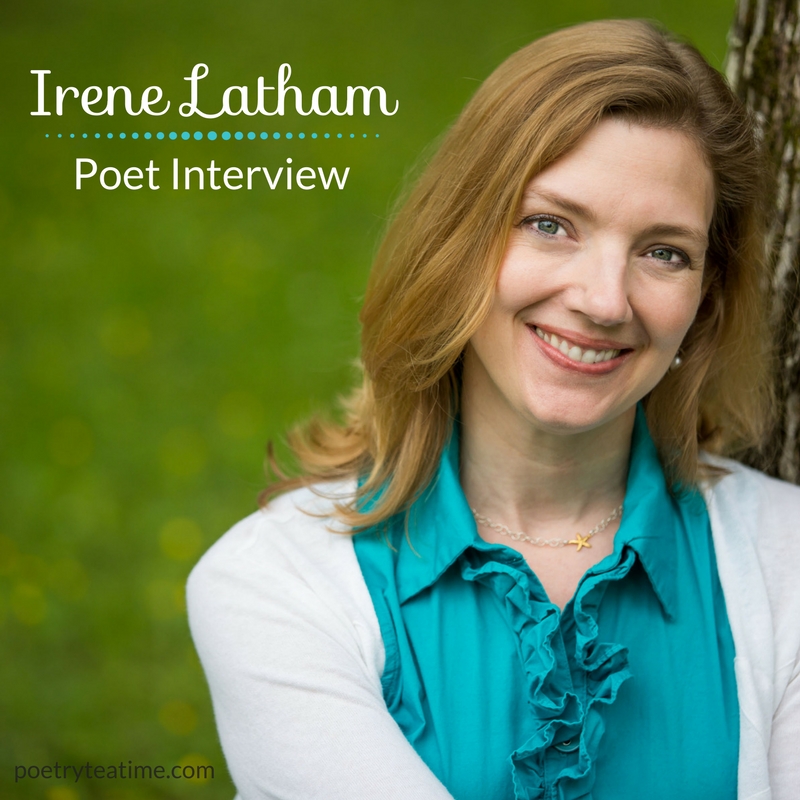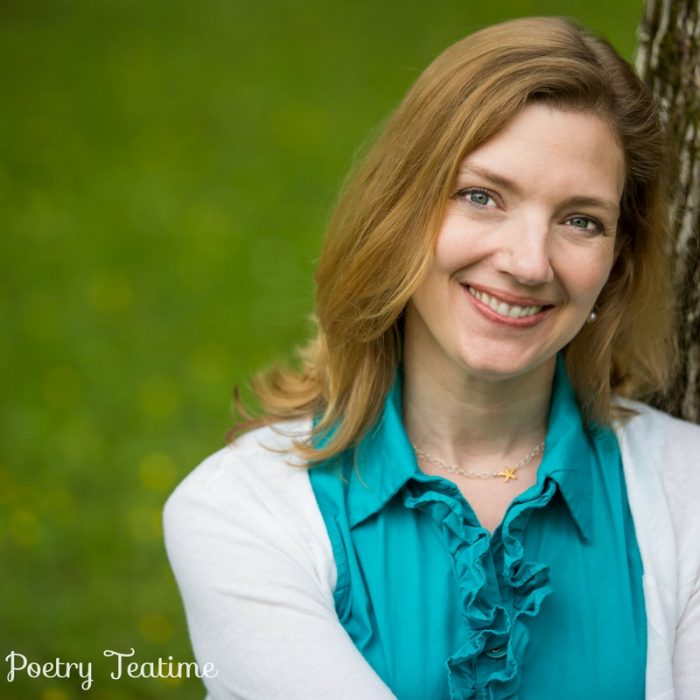Today we are delighted to welcome the wonderful Irene Latham to the Poetry Teatime blog. Irene is an author and poet who has written two novels for children and multiple volumes of poetry for both children and adults. Last year, she received the prestigious International Literary Association’s Lee Bennett Hopkins Promising Poet Award. Her works span continents from small towns in Alabama to the wastes of Antarctica. Enjoy getting to know Irene more in the interview below!
[This post contains Amazon affiliate links. When you click on those links to make purchases,
Poetry Teatime receives compensation at no extra cost to you. Thank you!]
Welcome to Poetry Teatime, Irene! The title of your blog is “Live Your Poem.” Can you tell us a little bit more about what you mean by that?
For me, poetry is a way life. Poetry is about being present, slowing down... about looking at the world very closely, and living in a state of wonder...and also about making deep connections and discoveries. What would happen in this world if we applied those things to all area of our lives?
You’ve mentioned before that you started writing love poems to your mother at four years old. You’ve also said that, in a way, all poems are love letters to or about someone or something. How does poetry show love or celebration?
One of the most wonderful and intoxicating things about being in love is how every moment is magnified. This is what we do in poetry. So, whatever the subject matter, one could argue that all poetry is an expression of love, and at its most basic, an expression of the love of language.
What is the greatest lesson being an editor for the Birmingham Arts Journal has taught you?
I really love this question. The practice of being an editor teaches one all sorts of things! I think mostly that it's taught me that everyone has a story to tell. And the stories I am most interested in -- the poems I most want to read and to share with the world -- are the ones that are vulnerable and raw and take unexpected imaginative leaps that give a glimpse not just into the poet, but into me (the reader) and also offer a new way of looking at the world.
Another lesson: the reason editors take so long to respond sometimes is because it's HARD to say no to good work! There is SO MUCH good work out there -- good work that's moving toward great but not quite there yet -- so many poets with voices and stories that deserve to be heard... I want to applaud and encourage everyone's effort and courage, and yet... it's only a 48 page journal with roughly a dozen poems each issue.
Your book The Color of Lost Rooms tells the stories of historical women who have been overshadowed by the famous men in their lives. How do you think poetry gives voice to the voiceless? What other voiceless people would you like to tell the stories of?
Anytime we make the effort and take the time to even imagine ourselves into someone else's life and experiences, we are bringing them back alive, giving them a voice, allowing them to change the world in new ways. I love writing persona poems, love how it helps me discover new/different worlds and challenges me to understand another's experience. Each April on my blog I write a poem a day inspired by art, and this year my project is on portraits. So I will be giving voices to faces who live inside frames. I'm excited!
What are some of your favorite writing prompts or habits that spark your ideas?
Like many writers, I am a voracious reader. I keep files of favorite lines in novels, poetry, etc.I love to travel, visit museums, talk to people, listen... all of this inspires me. Since attending NCTE (National Council of Teachers of English) this past November I have been on fire with ideas. Something happened in those rooms... so much of writing is showing up. Not just to the computer, but to LIFE.
You’ve given up your childhood dream of becoming a farmer, but you often write about natural subjects like the farmer’s market in Fresh Delicious. What can poetry teach us about nature?
Ooh, this is territory I keep exploring in my writing. :) Poetry can show us maple trees in fall generously giving their most prized possession away. It can show how a stream wanders and reassure us that we, too, can wander, and we will still eventually find an ocean. It teaches us that the sky is always there. There are enough words for everyone. The world is constantly changing, and we, too, should embrace change -- even at the level of changing words in a poem. Not sure if I answered your question... I find nature teaches me as much about poetry (and life) and poetry does!
Your upcoming collection, Can I Touch Your Hair? Poems of Race, Mistakes, and Friendship, is co-authored with Charles Waters. What was the process of writing this collection like? Why do you think it is an important issue to address? What do you want people to take away from reading the book?
CAN I TOUCH YOUR HAIR? is my first experience with collaboration, and I couldn't have picked a better partner! Charles and I were friendly acquaintances when we embarked upon this journey, and the book really mirrors our developing friendship. It was tough at times to be vulnerable and honest about issues as potentially explosive as race and identity. It took a lot of trust. We both made mistakes along the way, and we worked through them together. And that is exactly what I hope for others -- to be brave enough to have these tough conversations, to be open to making mistakes and forgiving when they inevitably happen. To ask the questions and listen to another person's answers.
What is the most powerful book you have read lately, and what is one lesson you took away from it?
SACHIKO: A Nagasaki Bomb Survivor's Story by Caren Stelson. There is much to take away from this book, but I love how Sachiko found inspiration from these words spoken by Helen Keller, who visited with Sachiko in 1948: "Although the world is full of suffering, the world is full of overcoming it." Sachiko is a perfect example of this.
Thank you so much for joining us today, Irene! You are full of wisdom.
Be sure to check out Irene Latham’s website and blog, and, of course, her many marvelous books of poetry below.
Fresh Delicious: Poems from the Farmer's Market
Dear Wandering Wildebeest: And Other Poems from the Water Hole
Can I Touch Your Hair? Poems of Race, Mistakes, and Friendship (pre-order)
When the Sun Shines on Antarctica: And Other Poems about the Frozen Continent



